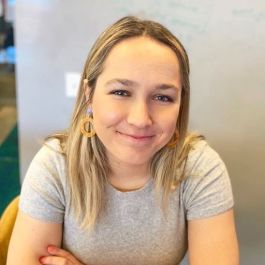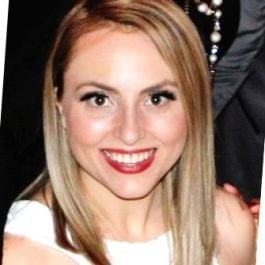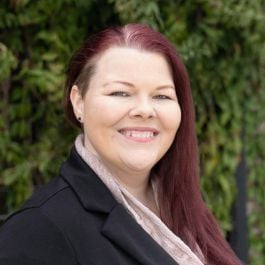The most perfect plate of food — the sliver of meat cooked to perfection, draped in a reduction that took longer to make than most people spend commuting in a month, topped with tweezer-precision microgreens — can taste like cardboard if served in the wrong environment.
It’s well-known that dozens of factors go into whether we enjoy a meal.
Red and pink in the colors in the room amplify the sweetness of the food, according to researchers at the University of Tokyo and at Oxford.
A Forbes article noted that the stories told around food are more important in the enjoyment of a meal than we might even know; pointing out that long narratives can play a big role in enjoyment. The article notes that ‘hero-driven stories trigger a higher release of oxytocin (also known as the love hormone)’ — yes, even when it comes to food.
Having a curated experience while eating makes a big difference — and the same is true for any customer experience. In the tech world, customer success managers control that experience.
Customer success managers play a lot of roles that are similar to a fine-dining restaurant. Like a chef, they guide the product team with feedback. Like a sommelier, they offer recommendations to help elevate the customer experience. Like a waiter, they ensure the customer has everything they need.
Built In spoke with nine customer success managers about what they think makes a Michelin Star-level experience, and what it’s like behind the scenes on their teams.
Featured Companies
Flywire is a global payments enablement and software company.
How did you decide to join your current team? What stood out to you the most during the interview process?
I decided to work with my current team because I was really excited about the people I would get to collaborate with every day. What stood out the most is how much everyone bought into the company culture and believed in the products at Flywire.
Do you have any favorite aspects of your role or the team culture?
The people I get to work with on a daily basis both within Flywire and externally with our clients. Each client is so different so no day is the same. I love how collaborative the role is and how willing people are to help each other.
Another favorite aspect of the role is getting to hear feedback about our product from clients and relaying that to our product team, which can directly impact changes and updates we make. There’s been a lot of growth within our organization, a number of people have come in as customer success managers and now lead their own teams. Flywire also offers a number of training opportunities and internal programs to make sure you’re ready to take the next step in your career.

What advice would you give to customer success leaders eager to strengthen their own teams? What do you consider the most important elements to have on a customer success team?
Allow the people on your team to grow and give them the resources they need to do it. Also, don’t be afraid to try new things to evolve your processes.
Drata automates the compliance journey from start to audit-read and beyond, providing support from the security and compliance experts who built it.
How did you decide to join your current team? What stood out to you the most during the interview process?
Deciding to join the team was all about finding the right fit. From my first call with the recruiter to the final presentation round, it was clear that Drata’s customer success team wanted to ensure I was a good match, while also making sure I felt the same way about them. The people I met, the time dedicated to each interview and the order of our conversations all helped shape my impression of the organization and the team I’d be working with daily.
Ultimately, it was the team that convinced me to join. A company is only as strong as its people, and at Drata, everyone is aligned toward a common goal, with customers at the center of everything they do. Drata not only prioritizes customer success but also values its employees, recognizing that if we don’t feel successful, we can’t fulfill our mission.
“Drata not only prioritizes customer success but also values its employees, recognizing that if we don’t feel successful, we can’t fulfill our mission.”
In today’s fully remote work environment, it’s easy to feel isolated. However, throughout the interview process and in every interaction, I sensed a genuine willingness from everyone to help and connect. Even without the option of popping over to a cubicle, there’s a strong sense of support and collaboration here.
What keeps you on your current team? Do you have any favorite aspects of your role or the team culture? Are there opportunities for advancement?
What keeps me here is the people — my team, my peers and our leadership. I can’t say enough about the team I manage. They’re eager to learn, ready to make an impact and they do it all with such grace. The culture here is built around folks who genuinely want to come to work and do great things.
Opportunities for advancement are plentiful, but I don’t see advancement as just moving up in title. It’s about stretching yourself, challenging your limits and getting involved in new projects. What I love most about my team is that we work with our emerging-market customers, and we have a lot of them. This gives us the chance to brainstorm ideas, develop them and execute quickly. We’re always exploring new concepts, learning and figuring out the best ways to guide our customers on their journey.
This kind of growth isn’t available everywhere. Many companies talk about wanting you to make an impact, but they keep you in a narrow lane. Here, we have the freedom to drive significant change and see real results.
What advice would you give to customer success leaders eager to strengthen their own teams? What do you consider the most important elements to have on a customer success team?
What has really worked for me is getting involved with my team from the ground up. I started my management career by being promoted from a customer success manager to a team lead and then to a manager. I know exactly what challenges my team faces because I’ve been there myself. This level of empathy is crucial; it’s not just about understanding your team, but also knowing how customers are using your platform and what your customer success managers deal with daily.
Having this insight allows you to propel your team forward. It helps you identify and solve problems, making it easier for customers to adopt and use the product while also streamlining your team’s processes. When your team feels confident, supported and valued, they’re ready to take on the world.
Seeing things from your team’s perspective influences your strategy, and that pays off big time in metrics — no matter which ones you track.
SimplePractice is a healthtech company that runs a cloud-based, HIPAA-compliant platform with features like paperless client intake, integrated billing, online booking, telehealth and more.
How did you decide to join your current team? What stood out to you the most during the interview process?
Prior to joining the SimplePractice team, I worked in the mental health space where I provided direct counseling services and program management to people. In that role, I helped individual clients and small groups. I joined SimplePractice because I wanted to have a larger impact, and in this work, I’ve been able to scale my influence exponentially.
At SimplePractice, we support hundreds of thousands of clinicians on our platform, and because of my role in customer success, I get to contribute to the well-being of millions of clients. That impact was what stood out to me in the interview process. It was the primary reason I joined this team — and it’s the reason I’ve stayed for as long as I have.
What keeps you on your current team? Do you have any favorite aspects of your role or the team culture? Are there opportunities for advancement?
What keeps me on this team is the profound impact we’re able to make in the mental health field. Knowing that our work supports clinicians who, in turn, help countless clients is incredibly rewarding. For those of us in customer success, we get to help the helpers. Our customers pour all they have into healing their clients and we get to play a part in helping them do so. Plus, the collaborative environment and shared passion for making a difference really fuel my enthusiasm each and every day.
“The collaborative environment and shared passion for making a difference really fuel my enthusiasm each and every day.”
Our values of “we come as we are” and “we think big” really shine through in our customer success team. I love the creative and innovative spirit of our team. We’re always exploring new ways to support our customers and their clients. The culture here encourages out-of-the-box thinking and champions anyone who brings a good idea to the table.
SimplePractice has grown quickly, and in my five years here, I’ve been in many roles. Opportunities to get involved in various company initiatives have afforded me multiple promotions, chances to contribute to important work and the ability to take on new and strategic responsibilities.
What advice would you give to customer success leaders eager to strengthen their own teams? What do you consider the most important elements to have on a customer success team?
My advice to customer success leaders is to foster a culture of empathy, grit and continuous learning. Encourage your team to deeply understand each customer’s journey and challenges. Doing so leads to stronger relationships and the ability to think of tailored workflows and solutions. Also, invest in your team’s growth. Providing your team with learning opportunities keeps them engaged and continuously enhances their skills.
Clear communication, strong problem-solving skills and a customer-centric mindset are crucial elements for a customer success team. Your team should be adept at listening to customers’ needs, able to translate those into insights other teams can understand, which will lead to actionable, companywide strategies. Additionally, maintaining a collaborative environment and spirit, where team members can share perspectives and learn from each other, is vital for success.
Scaled Agile, Inc., is the provider of SAFe, a framework for enterprise agility.
How did you decide to join your current team? What stood out to you the most during the interview process?
I joined Scaled Agile, Inc. in September 2019 as a customer success representative. It was apparent throughout both the interview process and subsequent onboarding that SAI lived and breathed customer-centricity and respect for people.
I found learning the business through the lens of support not only rewarding but highly effective, as it provided me with insight into the challenges our customers face on a daily basis. It also helped me understand our product backend and develop problem-solving skills, which were pivotal in my shift to technical support engineer. Throughout my time in both of these roles, I was given ample opportunity to upskill in various ways, including professional certification courses, pairing with coworkers across the organization and mentorship from senior leaders.
I was invited to apply for a customer success manager position, which aligned with my passion for customer service and problem-solving. I knew the team well and I was excited to join a group of hardworking and dedicated folks that could support my development. With their guidance, I was able to move into a senior position within a year.
What keeps you on your current team? Do you have any favorite aspects of your role or the team culture? Are there opportunities for advancement?
A few key things keep me driven and engaged as a customer success manager. Our culture is vital, both as a company and as a team. Our team members respect and trust each other. We also have tremendous psychological safety, which allows for experimentation when necessary, and the autonomy to work in the style that best suits each team member.
“We also have tremendous psychological safety, which allows for experimentation when necessary, and the autonomy to work in the style that best suits each team member.”
Personally, I have a passion for customer service. My best days are when an engagement with a customer unlocks undiscovered potential in their relationship with SAI or when I’m able to solve a difficult issue. Helping others achieve success is fulfilling and keeps me motivated. I also enjoy change, and the dynamic nature of learning and supporting our latest product releases keeps me continuously engaged.
What advice would you give to customer success leaders eager to strengthen their own teams? What do you consider the most important elements to have on a customer success team?
As a leader, one of your most important customers is the team you lead. Practice the customer-centricity you’d expect your team to embody. Show your team transparency, trust and respect. There is no quicker path to unlocking your people’s intrinsic motivation.
Knowledge-sharing is key to a high-functioning customer success team. In the age of digital transformation, features release fast, and staying up to speed is a full-time responsibility. Foster the psychological space to ask questions. Encourage information exchange. This will help team members to stay informed and engaged.
SpotHero is a digital parking platform and the only independent off-street parking marketplace in North America.
How did you decide to join your current team? What stood out to you the most during the interview process?
When I was on the hunt for a new job, I knew I wanted to continue working in customer success, but I also wanted the opportunity to learn more about sales and business development. The growth manager position at SpotHero was a great hybrid of the two, where I get to build and manage relationships with our operators and work on finding and pitching ways to help them build revenue.
From the interview process, I saw how cohesive the team was, especially after speaking with other growth managers. Every interviewer I spoke to was welcoming and easy to talk to, which made me feel like I was a part of the team. It was clear from my interviews that SpotHero took pride in their culture, work-life balance and creating a welcoming environment. I’m so grateful to be a part of the SpotHero team and lucky to work with such awesome people.
What keeps you on your current team? Do you have any favorite aspects of your role or the team culture? Are there opportunities for advancement?
As mentioned before, I enjoy the hybrid aspect of client relations, account management and growth. Tying all of those things into one felt like the perfect role for me. My favorite aspect of the team is that we’re all honestly so funny and everyone’s sense of humor is on point. We’re all able to collaborate and help one another seamlessly because that’s just the kind of work environment our manager fosters within our team. Our team is goal-oriented, and I enjoy how we work to motivate and push each other so that we’re all succeeding.
“Our team is goal-oriented, and I enjoy how we work to motivate and push each other so that we’re all succeeding.”
One thing that stood out to me when I interviewed was the longevity of SpotHero’s employees. I interviewed with people who had been with the company for as long as 9 years, which was great to see. It made me feel assured that there would be opportunities for advancement. On top of that, SpotHero provides employees with a lot of resources to explore growth opportunities based on their needs. I also love that we have access to Udemy, as it allows me to brush up on my skills and learn from people outside of my network.
What advice would you give to customer success leaders eager to strengthen their own teams? What do you consider the most important elements to have on a customer success team?
Having an open line of communication with your team and your manager is crucial. When I first joined my team at SpotHero, there was so much to take in and absorb. Luckily every person, not only from my team but across the company, was more than willing to help me learn and succeed. Having that collaborative and supportive workspace is so pivotal to success. I’ve worked at companies in the past where I didn’t feel like I had people to go to if I had questions, but at SpotHero, I’ve never felt bad for asking questions. Curiosity is encouraged.
Lastly, I think one of the most important elements to have on a customer success team is trust and autonomy. My manager trusts that I will get my job done, which gives me the confidence to deliver on all aspects.
Domino Data Lab is an AI company that accelerates the development and deployment of data science work while increasing collaboration and governance.
How did you decide to join your current team? What stood out to you the most during the interview process?
I joined my current team for two primary reasons. First, the role has a strategic opportunity to drive customer success and contribute to our customer’s long-term growth. Customer success managers are critical in nurturing strong relationships, ensuring customer satisfaction and supporting renewals and upsell opportunities. Secondly, I was drawn to the fact that customer success managers have the agency to identify opportunities for improvement — both in how we serve our customers and how we operate internally — and create meaningful, positive change.
During the interview process, what stood out was the company’s emphasis on placing customer success managers at the heart of our customer-first strategy. There was a clear vision for how the customer success team contributes to overall growth, and this aligned with my desire for helping customers succeed, as well as driving value and long-term impact. Domino’s customers are doing incredible things, and we’re glad to be able to support them on their journey.
What keeps you on your current team?
What keeps me on my team is the strategic direction of our product, and the consistent ability to enact change. The vision from leadership about the direction of our company, along with our market fit, gives customer success managers confidence in customer conversations. Further, as we are the front lines for our customers in their journey, we see what needs to happen to make our customers successful. And we have the agency to make that happen. That is powerful.
“As we are the front lines for our customers in their journey, we see what needs to happen to make our customers successful. And we have the agency to make that happen. That is powerful.”
What advice would you give to customer success leaders eager to strengthen their own teams? What do you consider the most important elements to have on a customer success team?
My advice would be to empower your team with the right tools and insights to proactively serve your customers’ evolving needs. From a customer success perspective, unlike pre-sales teams, your customers have already chosen your solution — they saw its value, and it’s now about delivering on that promise as best as we can. By enabling your team with the right tools, you can create more predictable positive outcomes throughout the customer journey, in a transparent way.
The most important elements to have on a customer success team are grit and an intense desire to create positive outcomes for your customer. Grit is essential for navigating through the inevitable ups and downs, from changes in customer leadership to market challenges. At the same time, the desire to see your customers succeed means being relentless in removing obstacles, both internally and externally, to help them reach their goals. This customer devotion is at the core of everything we do, and it’s how we build long-term partnerships that matter.
PureSpectrum provides tools to automate survey creation and source survey takers quickly and effectively for researchers
How did you decide to join your current team? What stood out to you the most during the interview process?
When I had my interview with the founder and CEO of PureSpectrum, Michael McCrary, I was immediately impressed when he demoed the Marketplace platform. Its intuitive, transparent and automated capabilities made me realize that my job would have been significantly easier if my previous company had used this product. He explained the company’s commitment to making managing projects easier with automation and shared his insights into the future landscape of our industry. Witnessing the product’s capabilities and understanding the growth potential of the company, I was inspired by his vision. As this was during the startup stage, I knew I wanted to be part of building a company with a product that would truly benefit users within our industry and help shape that future.
What keeps you on your current team? Do you have any favorite aspects of your role or the team culture? Are there opportunities for advancement?
What keeps me motivated to be with my current team is the opportunity to build out this new customer success team and the potential for our company to continue expanding within the industry. One of my favorite aspects of my role is being able to mentor my team members and help them grow in their careers. While there is a clear path for my advancement, my primary goal is to create opportunities for my team, ensuring they can develop new skill sets and advance in their careers.
“One of my favorite aspects of my role is being able to mentor my team members and help them grow in their careers.”
What advice would you give to customer success leaders eager to strengthen their own teams? What do you consider the most important elements to have on a customer success team?
Since our customer success team focuses on both troubleshooting and onboarding, it’s important that they consistently improve their product knowledge. Empowering the team to stay current on platform updates and new features is essential. Peer learning is equally important, as it promotes collaboration and allows team members to share insights and learn from each other’s experiences. Given that each team member may encounter unique challenges, discussing these challenges with the team and creating a knowledge base will help the team quickly resolve known issues and ensure newer members have access to proven solutions.
The most essential elements of a customer success team are empathy with a customer-centric mindset, as well as a problem-solving approach. Empathy ensures the team genuinely focuses on helping clients succeed and supporting their broader goals. Equally important is a problem-solving mindset, where team members are resourceful in troubleshooting and finding solutions that not only resolve issues but also align with the customer’s long-term objectives. These elements help build a partnership for both the customer and the company.
Elevate K-12’s platform enables educators to deliver live instruction virtually for students ranging from kindergarten to twelfth grade.
How did you decide to join your current team? What stood out to you the most during the interview process?
I've always been most motivated and fulfilled when investing in mission-driven work. With Elevate K-12, I was able to clearly envision my contribution to making education a more equitable, inclusive and dynamic space. What I liked most was both the ability to build and the opportunity to learn. It was refreshing to find myself in conversations with people who were fun, personable and unapologetic about their passion or drive.
What keeps you on your current team? Do you have any favorite aspects of your role or the team culture? Are there opportunities for advancement?
On an interpersonal level, I am thankful and proud to be part of a group that truly shows up for each other, and that always strives to embody integrity in action.
On a team level, one of our strongest assets is our shared diligence and relentless approach to service. My team has mastered the balancing act of grit and grace; and even though we each have our own approach, we accomplish the same high-quality outcomes.
“My team has mastered the balancing act of grit and grace; and even though we each have our own approach, we accomplish the same high-quality outcomes.”
I love working with high performers, and I have great respect and esteem for each of my colleagues. Our role within the organization requires meeting many complex needs; and I’ve found it incredibly fulfilling to collaborate, learn and evolve together. Each of us is driven, and deeply committed to service.
What advice would you give to customer success leaders eager to strengthen their own teams? What do you consider the most important elements to have on a customer success team?
First, build trust. When people feel heard and understood, they are more likely to engage and innovate. I think a valuable driver to accomplish this is by on providing clear direction and the ability to relate with people within the organization. Accessible, collaborative and solution-oriented connections with all levels and functions allow for making relevant and sound decisions across functions.
Second, foster a commitment to quality. It is valuable to keep pace and momentum, but not at the cost of quality or proper planning. On my team, a few questions we routinely ask ourselves are Are we meeting the needs of our students and district stakeholders? Is our work in line with our client needs and priorities? Are we adding or detracting from our personal/team/stakeholder objectives? Is what we are up to sustainable for all parties involved?
Third, enable discernment trust, but always verify. As a complex system of technology and human capital, creating (and maintaining) infrastructures that allow for periodic rest, review and analysis allows for an organization space to thrive.
The most important elements on a customer success team are: advocacy, relationship building and resource optimization.
Gradient AI is a provider of AI solutions for the Group Health and P&C insurance industries through a SaaS platform that leverages the data from tens of millions of policies and claims, providing insurers with high-resolution, data-driven insights.
How did you decide to join your current team? What stood out to you the most during the interview process?
During the interview process with Gradient AI, I was very impressed with the passion I saw for the company, product, team and customers. It was clear the depth of talent on the team was deep, and I was excited at the prospect of contributing my experience while learning from others. Everyone I spoke with had a true passion for innovation and dedication to improving the customer experience. This spanned from a strong commitment to taking action on customer feedback, through working collaboratively amongst the team and across departments to innovate to having dedication to doing the right thing.
What keeps you on your current team? Do you have any favorite aspects of your role or the team culture? Are there opportunities for advancement?
One of my favorite aspects of my team is the continuous collaboration. Whether it’s sharing client feedback, brainstorming solutions or learning from one another, the strength of our team’s communication enables us to grow both individually and together, ultimately allowing us to provide a better experience for our clients. Within the team culture, there are truly no silly questions. The ability to freely communicate within the team and interdepartmentally has been integral in my professional growth, which has led to my success here.
“One of my favorite aspects of my team is the continuous collaboration.”
What advice would you give to customer success leaders eager to strengthen their own teams? What do you consider the most important elements to have on a customer success team?
Empower your team with the tools to work autonomously, while also fostering an environment of continuous collaboration. Customer success teams are at their best when they are sharing ideas, experiences and best practices. It allows team members to foster innovation and gather the information necessary to best meet their customer needs. Additionally, as customer success professionals, we thrive on feedback. While most of this comes from our customers to improve their experience, we also thrive when we receive feedback on our strengths and areas of opportunity. Keeping those lines of communication open is critical for our abilities to better serve our customers, our teams and ourselves.
zLinq provides software and services to manage enterprise customers’ communication lifecycles.
How did you decide to join your current team? What stood out to you the most during the interview process?
Funny enough, I wasn’t looking for zLinq. They were not even on my radar. I had updated my LinkedIn in preparation for a different position. Then, zLinq reached out to me.
It was probably one of the most intense and fun interview processes I have been through. First, there was a meeting with the recruiter, and this was really my opportunity to learn what zLinq was all about. The second round was with directors and the VP of client services. I loved being able to interview with leaders I would actually be working with. So many times, interviews are conducted by an HR department that doesn’t really understand the day-to-day job responsibilities. The third round consisted of presenting a case study to the leadership team as though I were presenting to the client. This really gave me the feel of what I would be doing for my clients and put a spin on the interview process.
What keeps you on your current team? Do you have any favorite aspects of your role or the team culture? Are there opportunities for advancement?
I have always been one to get my “feel good” by helping others. In my current role, that is what I get to do all day long. I get to help my clients save money, transition their technology and better understand where their telecom spend is going. The job is ever-evolving, so I never get bored.
When I applied, I let zLinq know I was concerned with my three big Cs: client experience, culture and compensation, in that order. The culture here is unlike any I have ever experienced. A lot of businesses say they believe in a life-work balance, but how many do you know that include “have fun” in their mission statement? zLinq has been a revelation in how I view employers and what equal reciprocation actually looks like. We are all very protective of the culture here, and it is because leadership here truly cares about you as an individual.
zLinq is unique in that there are always ways to advance. Whether it is taking a role on a new or expanding team, or following the preset self-promotion path, there are tons of ways to move up. I also appreciate that zLinq tends to look inward when filling vacancies to grow and foster existing talent.
“The culture here is unlike any I have ever experienced. A lot of businesses say they believe in a life-work balance, but how many do you know that include ‘have fun’ in their mission statement?”
What advice would you give to customer success leaders eager to strengthen their own teams? What do you consider the most important elements to have on a customer success team?
Put your ego aside and listen to your teams. They are the ones in the trenches day in and day out, following the trends and alerting you to what is happening in the telecom world. I feel like our leaders here do a wonderful job of this.
Diversity is an important element to have on a customer success team. Diversity in background, experience and leadership. We thrive because we have talent from all walks of life, with different perspectives, and different experiences.
























